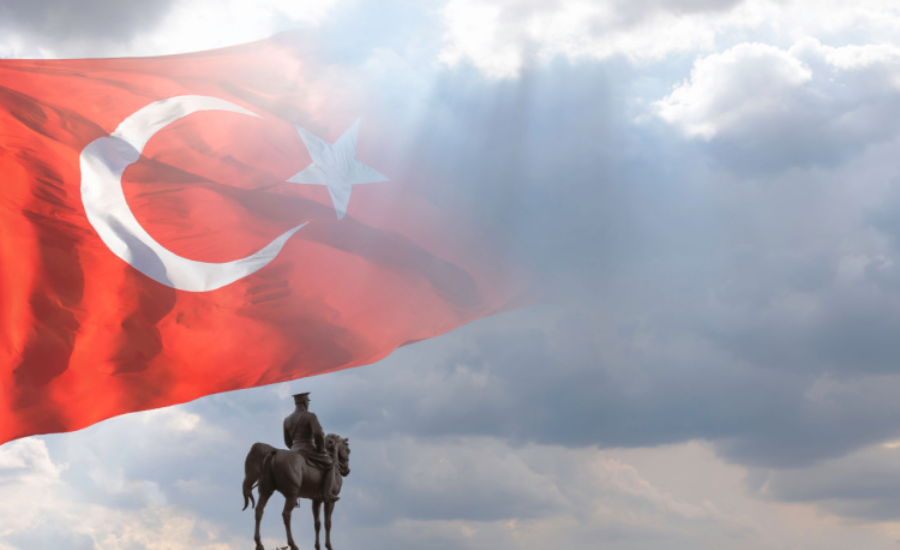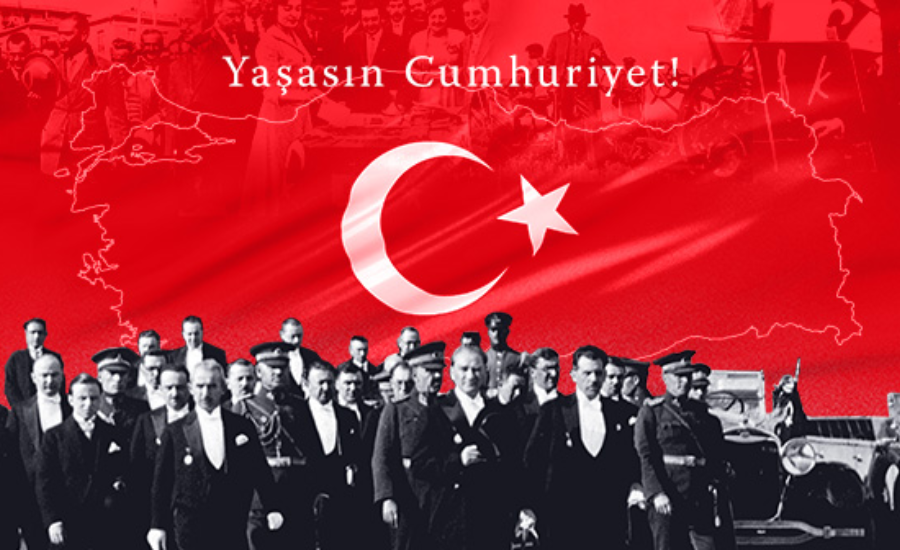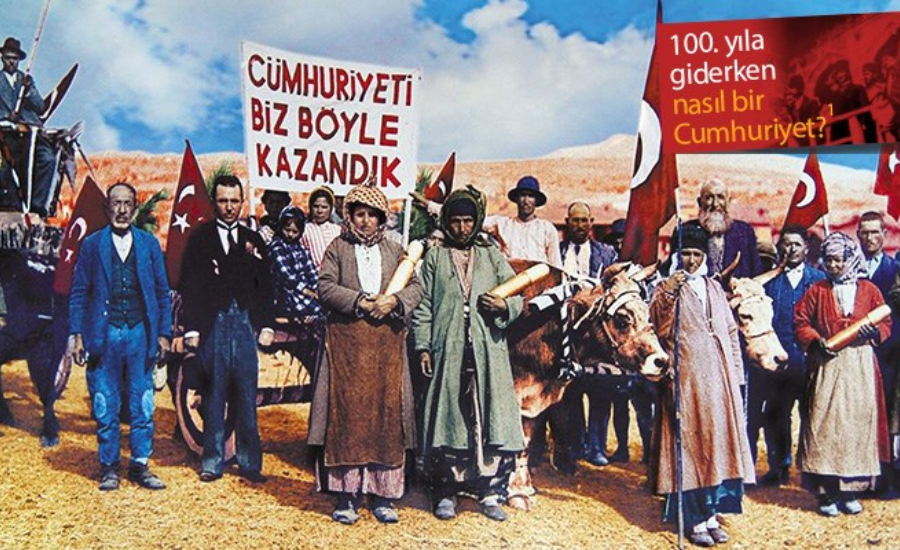Introduction To Cumhuriyet
The term Cumhuriyet is fundamental to many modern political systems. If you’ve ever heard about republics or seen countries governed by the people, you’ve encountered the idea of Cumhuriyet. But what exactly does it mean? Let’s break it down step by step.
What Does Cumhuriyet Mean?

Cumhuriyet, which directly translates to “Republic” in English, is a form of government where the country is considered a “public matter,” and the ultimate power rests with the citizens, not a monarch. In a republic, elected representatives, chosen by the people, have the responsibility of governance. The president typically serves as the head of state, though the role can vary depending on the country.
The Historical Context Of Cumhuriyet
The notion of a republic isn’t a new concept—it traces back to ancient civilizations such as Rome, where the idea of electing representatives took root. However, in its modern form, Cumhuriyet found its footing during the Enlightenment era in Europe. As monarchies began to lose their grip on power, people yearned for self-governance, leading to the establishment of republics across the globe.
How The Idea Of Cumhuriyet Shaped Modern Nations
Republicanism became a beacon of progress, especially after the fall of empires and monarchies. This shift in power from a single ruler to elected individuals inspired the formation of many modern states. The principle of “government by the people” has now become a cornerstone of many nations’ constitutions, including Turkey.
Evolution Of Cumhuriyet In Turkey

The Birth of the Turkish Republic
Turkey’s path to becoming a Cumhuriyet was not without struggle. After the fall of the Ottoman Empire in the aftermath of World War I, Mustafa Kemal Atatürk, a visionary leader, spearheaded the movement to transform Turkey into a republic. The Republic of Turkey was officially proclaimed on October 29, 1923, marking a new era in the nation’s history.
The Role of Mustafa Kemal Atatürk
Atatürk’s role in establishing the Turkish Republic cannot be overstated. He modernized Turkey by implementing sweeping reforms, from secularizing the legal system to introducing a new alphabet. Atatürk’s vision was clear: Turkey would become a secular, democratic nation free from the autocratic rule of sultans.
Key Reforms and Policies
Among the significant reforms were the abolition of the Caliphate, the adoption of a new constitution, and the introduction of Western-style laws and education. These changes were instrumental in laying the foundation for a modern Cumhuriyet in Turkey.
Challenges Faced By The Early Cumhuriyet
Despite Atatürk’s reforms, the early years of the Turkish Republic were fraught with challenges. The country had to navigate political instability, economic difficulties, and the resistance from conservative factions who were attached to the old ways of governance.
Cumhuriyet vs Monarchy: A Comparative Analysis

Principles of Cumhuriyet vs Monarchical Rule
The core difference between a Cumhuriyet and a monarchy lies in the distribution of power. In a Cumhuriyet, the power belongs to the people, and their elected representatives govern on their behalf. In a monarchy, however, the power is concentrated in a single individual—usually a king or queen.
Advantages and Disadvantages of Both Systems
While Cumhuriyet promotes equality and representation, monarchies can offer stability and continuity. However, monarchies often struggle with modernization and adapting to the will of the people, whereas republics can be more responsive to change.
How Republics Emerged as a Global Movement
Republicanism wasn’t just a European phenomenon. After the American and French revolutions, the idea of Cumhuriyet spread rapidly across the globe. Countries in Latin America, Asia, and Africa adopted republican systems as they broke free from colonialism and monarchy.
Key Features Of A Cumhuriyet
Rule of Law
One of the cornerstones of any Cumhuriyet is the rule of law. Laws apply equally to all citizens, regardless of their status, and no one is above the law, ensuring fairness and justice.
Sovereignty of the People
In a Cumhuriyet, sovereignty belongs to the people. Through free and fair elections, citizens choose their leaders, ensuring that the government reflects the will of the majority.
Secularism and Its Role in a Cumhuriyet
Secularism is crucial in many republics, including Turkey. It ensures that religion and government remain separate, allowing for equal treatment of all citizens regardless of their beliefs.
The Balance of Power in a Cumhuriyet
A republic typically features a balance of power among the legislative, executive, and judicial branches of government. This system of checks and balances prevents any one branch from becoming too powerful.
Cumhuriyet Around The World

Examples of Republics in Europe
Countries like France, Italy, and Germany are prime examples of Cumhuriyet in Europe. Each of these nations has embraced the principles of republicanism, with their own unique variations.
The Spread of Republicanism in Other Continents
Outside of Europe, countries like the United States, India, and Brazil have adopted republican systems. The concept of Cumhuriyet has adapted to different cultures and needs, shaping each nation in unique ways.
Unique Variations of Republics in Different Cultures
Though the idea of a republic remains constant, its implementation can differ. For instance, the presidential system in the U.S. contrasts with the parliamentary republics of Europe, showcasing the adaptability of the Cumhuriyet concept.
The Role Of Education And Media In A Cumhuriyet
Promoting Civic Values Through Education
In a Cumhuriyet, education plays a vital role in promoting civic values. Schools teach students about their rights and responsibilities as citizens, fostering a sense of belonging and duty to the nation.
The Media’s Role in Strengthening Democratic Values
A free press is another pillar of Cumhuriyet. Media outlets hold those in power accountable, ensuring transparency and upholding democratic values.
The Future Of Cumhuriyet

Modern Challenges to Republicanism
While Cumhuriyet remains a strong form of governance, it faces modern challenges such as populism, misinformation, and authoritarian tendencies. These threats must be addressed to maintain the integrity of republics.
The Impact of Technology and Globalization
In the digital age, technology plays a crucial role in shaping public opinion. Social media, in particular, can influence elections and policy, making it both a tool and a challenge for modern Cumhuriyet.
Cumhuriyet in the 21st Century
As we move further into the 21st century, the idea of Cumhuriyet continues to evolve. Nations must adapt to new realities while holding on to the core principles of democracy, equality, and representation.
FAQs
Q: What is the difference between Cumhuriyet and Democracy?
A: While Cumhuriyet refers to a system where the head of state is elected, democracy is a broader concept where the people have the power to elect representatives and influence governance. In short, every Cumhuriyet is democratic, but not every democracy is a republic.
Q: How does a Cumhuriyet ensure the rule of law?
A: In a Cumhuriyet, laws are applied equally to all citizens, with an independent judiciary to enforce them. This ensures that no one is above the law, not even the leaders.
Q: What are the key symbols of a Cumhuriyet?
A: Common symbols of a Cumhuriyet include the national flag, constitution, and institutions like the parliament and judiciary, which represent the will of the people.
Q: How do Republics differ from Monarchies today?
A: Modern republics tend to be more democratic, with power distributed among elected officials, while monarchies often retain hereditary rulers, though many modern monarchies are constitutional.
Q: What role did Atatürk play in establishing the Turkish Republic?
A: Atatürk was the driving force behind the establishment of the Turkish Republic. His reforms transformed Turkey from a monarchy under the Ottoman Empire into a secular, modern Cumhuriyet.
Conclusion
The concept of Cumhuriyet is not just about governance—it’s about the people. It’s about ensuring that every citizen has a voice, and that laws are fair, transparent, and just. As nations continue to evolve, so too will the ways in which Cumhuriyet shapes our world.
Stay in touch for more updates and alerts visit: Intrepid Food!
